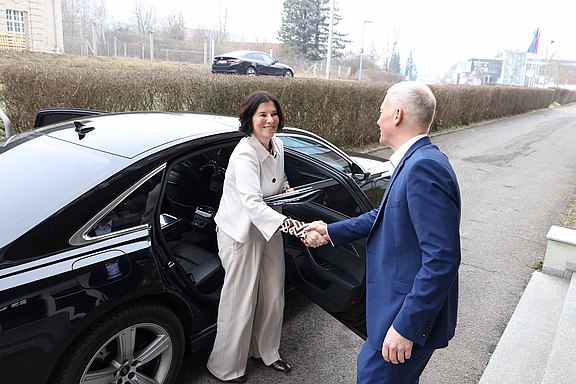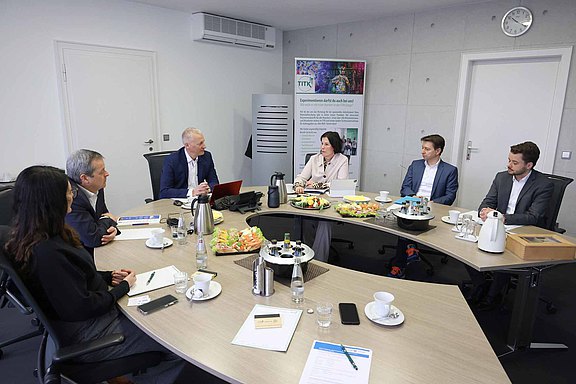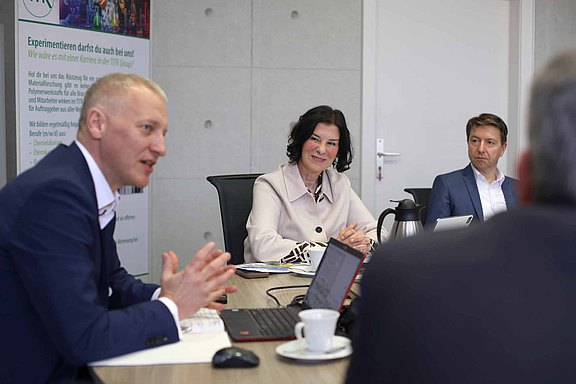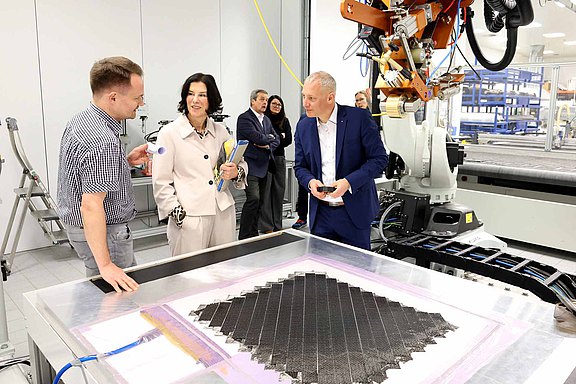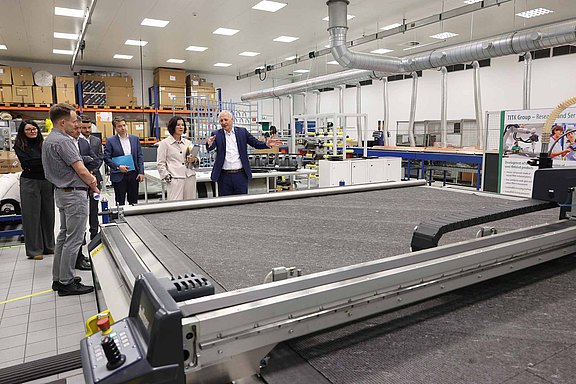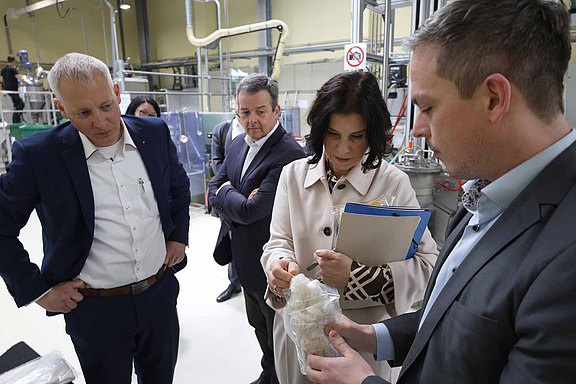The new Minister for Economic Affairs, Agriculture and Rural Areas in Thuringia, Colette Boos-John, visited the TITK in Rudolstadt today. Institute Director Benjamin Redlingshöfer also welcomed the Minister in his capacity as Chairman of the Board of the Thuringia Research and Technology Association (FTVT). He was joined by FTVT board member Thomas Brock from the CiS Research Institute for Microsensor Technology Erfurt and the new FTVT Managing Director Julia Eschment. The Minister was accompanied by Dr. Sebastian Stark, Head of the Innovation Promotion Department, and Dr. Patrick Herget.
As an umbrella organization for business-related research institutes in Bavaria, the FTVT now comprises ten non-profit, non-funded institutions whose approximately 900 employees generate an annual turnover of around 90 million euros. They bridge the gap between basic university research and industry transfer. Their mission is to quickly develop marketable products of relevance with application-oriented research projects.
“If we want to successfully master technological change, we must not only look at the risks, but above all focus on the enormous potential that is now available. We need to develop strategies on how we can exploit this. Otherwise others will do it,” said Redlingshöfer. He once again made an urgent appeal for reliable funding policy framework conditions from the federal and state governments. And this appeal was not only aimed at securing and strengthening innovation, but also at the excellently established Thuringian technology competition “get started 2gether”.
Thanks to this unique joint initiative between the FTVT, the Ministry of Economic Affairs and the Thüringer Aufbaubank, which has now spread far beyond the state's borders, 52 start-up projects have already been supported with a funding volume of four million euros since 2019. However, this year's round of the competition has not yet been scheduled, as funding is still dependent on the pending state budget decision.
Minister Boos-John pledged her support and spoke out clearly in favor of strengthening industrial research in Germany. “Innovation is the adrenaline for our economy. Research and new technologies give our companies the edge in global competition. Instead of planned cuts, the federal government must therefore at least stabilize innovation funding,” said Boos-John.
During a tour of selected TITK pilot plants, the Minister experienced first-hand concrete research work on composite materials for lightweight construction and learned how particularly sustainable cellulose fibers made from wood or hemp pulp will help shape the clothing of tomorrow.
